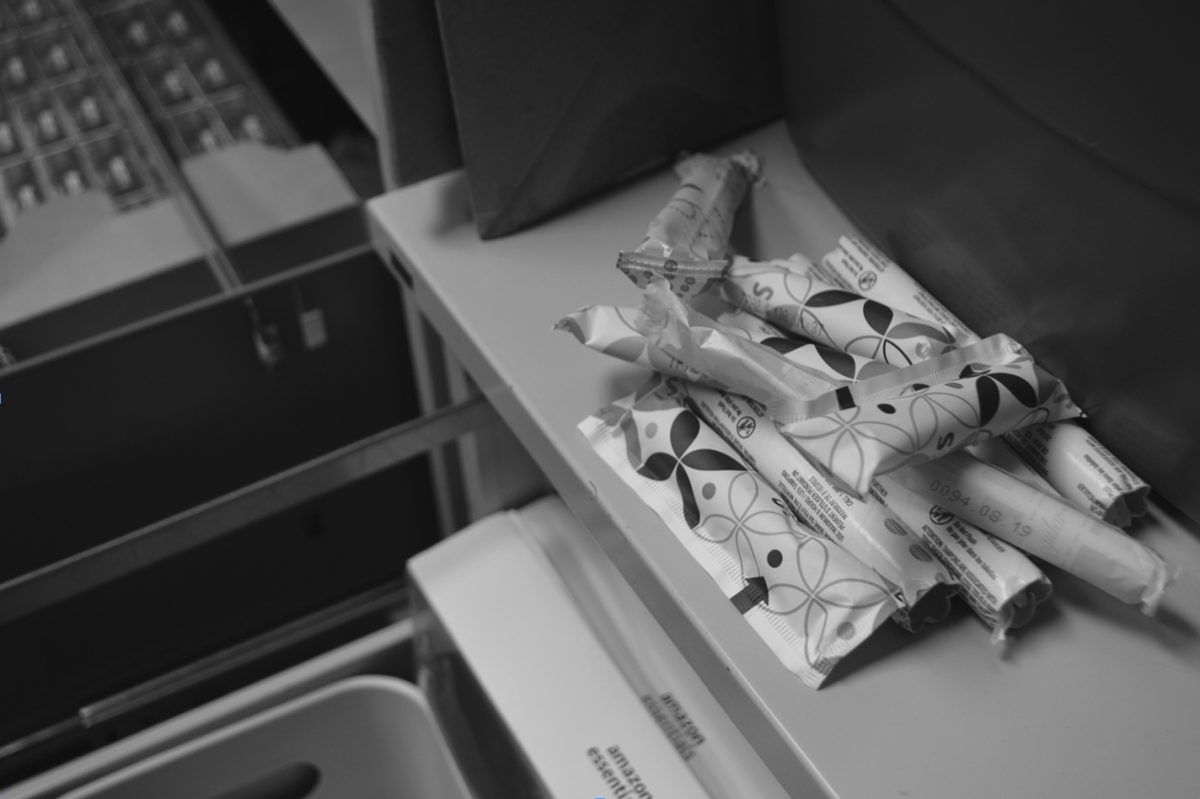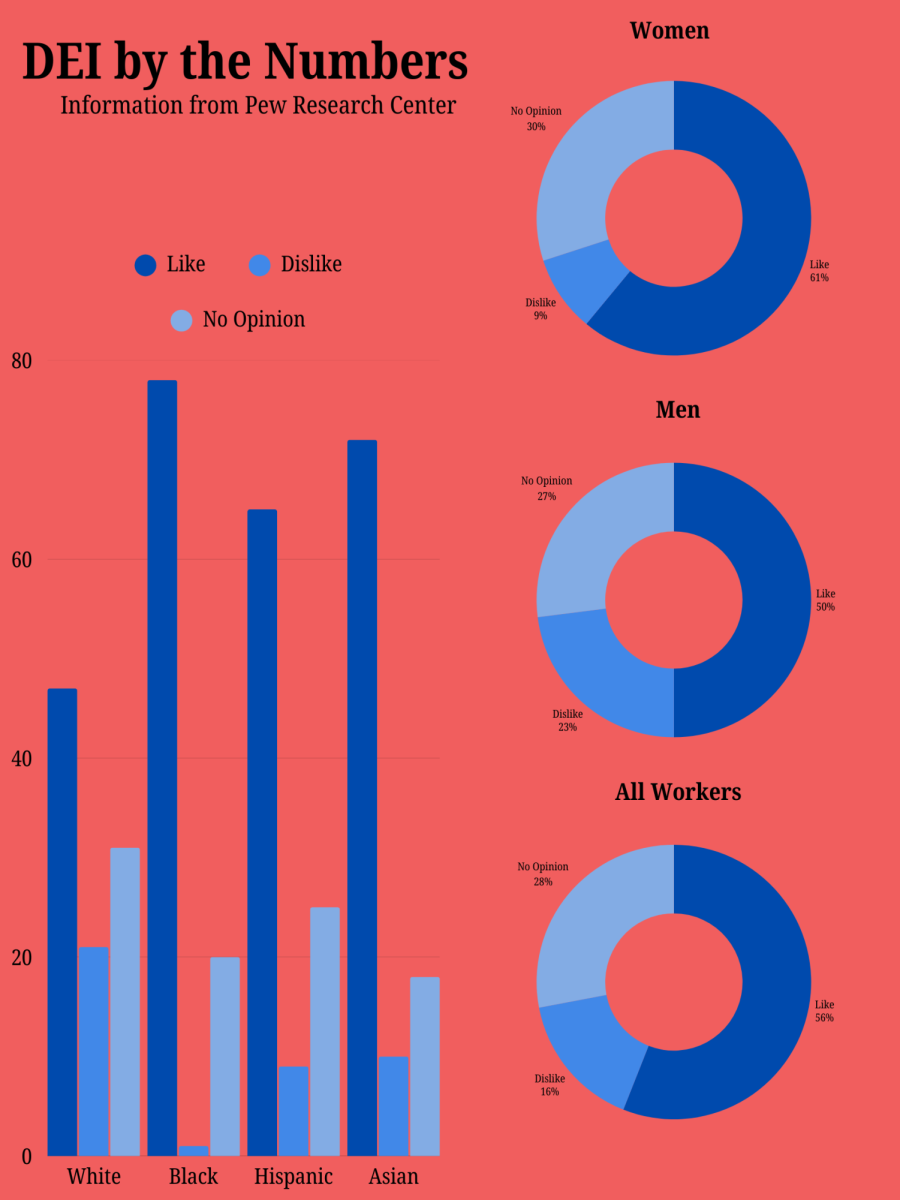During a busy summer, including the release of the Brat album, Biden dropping out of the presidential race and endorsing Kamala Harris, the 2024 Paris Olympics, and an attempted assassination on former President Trump, one major scientific discovery got lost in the chaos. A study done by UC Berkeley found toxic metals in tampons. The research shows that tampons from various brands contain toxic metals. They tested for 16 different metals, but the ones of the most concern, and highest concentrations, were lead, arsenic, and cadmium. These metals have the potential to harm major organs, and their respective systems, but also increase the risk of infertility and negative maternal health. Despite there being little research currently, the study draws specific attention to the risks of these metals due to the vagina’s high absorption capacity; it has a higher potential for chemical absorption than anywhere else on the body.
Thanks to her background, Shana Kelley, the AP Environmental Science teacher is able to share her thoughts on the source of the metals.
“I definitely think that the burning of fossil fuels produces metals in the air, and that could be one of the sources,” Kelley said. “But we don’t have control either. Was this in tampons 100 years ago? We just don’t know.”
This lack of knowledge creates a double-edged sword since no one knows where in the manufacturing process the toxins enter the tampons. As industrialization worsens, so might this problem.
“It’s twofold because a lot of counties are making strides to reduce their usage of fossil fuels but also consumerism is a big contributor, and I don’t see fossil fuels going away anytime soon,” Kelley said.
Toxins aside, Jennifer Smith, MD., an OB-GYN at Barnes-Jewish Hospital believes it’s really important for women to simply stay aware of the research. She hears people getting very anxious about all of this, and while it’s important to stay alert, there is truly no end-result answer as of now.
Kelley chimes in on this, sharing a very similar outlook since this study seems to have happened relatively early, in the grand scheme of things. She is simply glad that people are aware of it since that means further research will happen.
Smith elaborates on what might the future look like giving her two cents when it comes to side effects.
“There’s really only long term risk,” Smith said. “We need to figure out the amount these toxins are coming in, and what threat they pose to a healthy blood level. The numbers for lead and arsenic are small but very real numbers.”
Additionally, Smith shares her thoughts when it comes to the lead’s possible impact on fertility, and how it might change the fate of the mother and infant.
“It probably will affect fertility, but I doubt it will affect the infant because there are little environmental risks. I see it affecting other facets of health besides fertility since lead impacts bone-health and arsenic increases cancer-risk,” Smith said.
Kelley goes on to say how there is no concrete way for people to determine these concentration levels, and therefore the threat they pose.
“I tried to do the math, but when the numbers are that small you have to look at a lot more data and what concentrations of metals pose a true threat,” Kelley said. “I just don’t have the scope of data or knowledge to figure out those acceptable amounts.”
Smith voices a similar thought when it comes to the next steps and looking towards future research.
“Yes, unfortunately it will take some time to get answers, but people will already want those answers so the next stage of research has already begun presumably,” Smith said.
Expect it to take even longer since menstruation, generally, pertains to women only.
“This field, the field of medicine, has been dominated by men. And those men are much less interested in issues that affect women than men,” Smith said. “There is a level of inattention in healthcare because it just wasn’t designed for women’s issues.”
Junior Ceci Tremont speaks on this disparity concerning men’s and women’s healthcare services.
“A lot of studies in medicine are always done on men because they are always considered the focus and I think that’s why so little work has been done on topics like this for women because nobody cares,” Tremont said.
A senior at Central, Sophia Lundry, agrees with Tremont and how the lack of research indicates a larger issue at stake.
“I think it relates to the pink tax, and how these feminine products are specifically for women’s health, and the government won’t do much about it,” Lundry said.
For those who don’t know, the pink tax, according to the National Organization for Women, is an economic theory that companies advertise more expensive products to women while the identical product for men is considerably cheaper.
However, for this case specifically, there is something called the tampon tax: a luxury tax applied to menstrual hygiene products. Many will pass this additional tax off as inconsequential, but for low-income women, this cost poses a serious issue.
This research shows how women, of any income level, may be better off investing in a period cup which is basically a reusable tampon, for lack of a better definition. Smith says that while cups can be more intimidating, they may be worth the risk, especially in light of this new research.
“The cups are just one big cost upfront, but the risk is that you may have to try out multiple types to find the best one for you,” Smith said. “However, I do think it’s more financially friendly because the menstrual cup will last and last, but they should become more widely available. That would be wonderful.”
Smith goes on to say how in spite of the threat tampons pose, she is still trying to avoid advising people to stop using tampons entirely. She has no idea if pads are any less risky since there’s just not enough research, and they are more limiting for activity in a way that tampons are not.
“I believe that if someone were to ask ‘Should I stop using tampons?’ I would say that menstrual cups are a great alternative to tampons, but it’s hard to advise people on the alternatives when I don’t know those risks,” Smith said. Despite all of these benefits, for the environment and the female body, there is a reason tampons have prevailed for so long. They are simply easier to use, especially in a society where menstrual education is so overlooked and under-taught, as proven by the resounding answer from all three interviewed students.
Colleen Gardunia, a junior, shares her opinion when it comes to alternatives, and why she has avoided them.
“I don’t really know a lot about them and they personally scare me because I haven’t been properly educated on how to use them, so the tampon is just the easier option,” Gardunia said.
Tremont and Lundry both gave similar responses about the difficulty of using them and how it all boils down to a lack of education concerning menstruation and its supplies.
On menstrual cups, Lundry reports that she has tried some in the past, but they have a serious learning curve, and she finds them to not work as well as a tampon.
Obviously, this is a limited topic right now because the study is still relatively new. But does anyone really want to learn more, or is ignorance truly bliss in this case?
Tremont finds herself in the middle of these options, fearing neither option to be the lesser of two evils.
“I would want to know more, but at the same time, I also don’t because I know it would freak me out more,” Tremont said. “And there are other options but those are even more expensive than a tampon.”
Gardunia, however, sees more research as the best remedy, even though the sources are limited, if only because the emotional stock is too great.
“This is something that could severely impact my life and the people around me since I also have four sisters who probably don’t know about this study either,” Gardunia said.
So with no definitive answers or a clear next step, where does the world, but specifically the young women and girls of it, go from here?
“This study was a call to young women that our world is better when they are in science and medical fields because they give a voice to their gender,” Smith said.









Sam • Oct 28, 2024 at 2:29 pm
Wow this is crazy to me. The lack of research on something that affects 50 percent of the population’s lives daily is just shocking. We really should dedicate more research and funds to this topic. What’s even more shocking to me is that I had never even heard of this. It sucks that thinks like the Biden dropout get in the way of huge story’s like this.